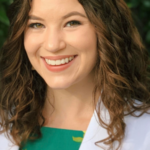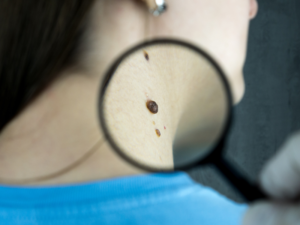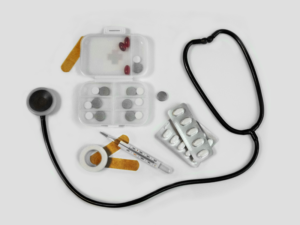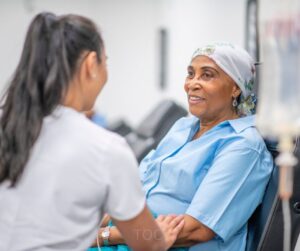Rory Medley, PA-S
Starting physician assistant (PA) school certainly presented its obstacles. How would I, a fresh college graduate, be able to tackle an intense medical education within the span of 27 months? The answer was almost too simple – one semester at a time.
Fifteen months of didactic education came and went, and with a new plethora of knowledge obtained it was time to set up 12 months of clinical rotations. One long year of immersive and hands-on learning was about to begin, and 16 weeks of that education were allotted to elective rotations of my choosing. These electives allowed for the unique opportunity and responsibility to expand my knowledge further, as well as fill in the gaps on topics I wanted to explore on a deeper level than my didactic year provided.
After a lengthy discussion with a seasoned clinical student, I set my sights on MD Anderson Cancer Center in Houston, Texas. Accomplishing a clinical rotation at this medical center became very important to me as I reflected on how cancer has personally affected my family, as well as how much I craved a more intricate medical oncology experience after everything I had learned in the classroom. After going through an application process, I was ecstatic to discover I would be assigned to the Lymphoma & Myeloma service in July 2021.
Rotating within a hematology specialty was important to me for a number of reasons, including obtaining additional outpatient clinical experience, following patients throughout their intense chemotherapy and radiation treatments, assisting with bone marrow biopsies, and participating in the survivorship clinic. Of these experiences, the survivorship clinic touched me deeply as I was able to witness multiple resilient people achieving their goals and dreams in the face of their past cancer diagnoses and subsequent lasting adverse effects. In addition, I had the opportunity to spend time discussing diagnoses, lab results, and treatment plans with patients, which allowed me to play an active role in their care and provided the immersive experience that I craved.
Four weeks passed much too quickly, and soon it was time for me to move on to the next rotation. Overall, I was very honored to rotate at such a highly renowned medical center and learn more details than I could imagine about the intricacies of lymphoma diagnosis and treatment.
To any current or future PA students reading this my advice to you is this: No matter what specialty you practice in, you are unfortunately guaranteed to care for a patient with a cancer diagnosis. Do what you can during your education to prepare yourself to provide the most high-quality and well-rounded care that you can as a future practitioner. Applying to rotate at MD Anderson or any other cancer center local to you is a decision you will not regret!

Rory Medley, PA-S – Physician Assistant Studies Program – UAB School of Health Professions







